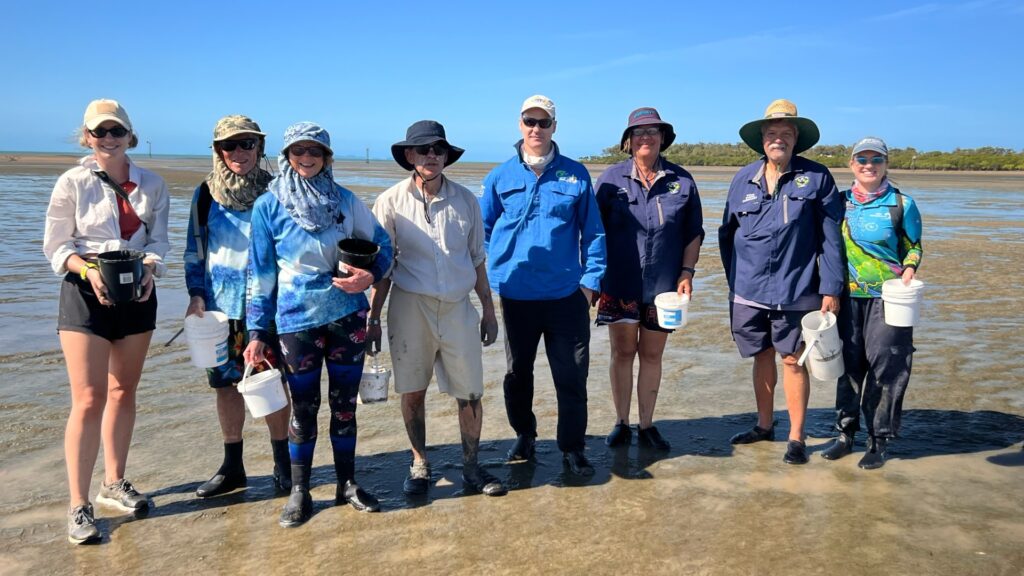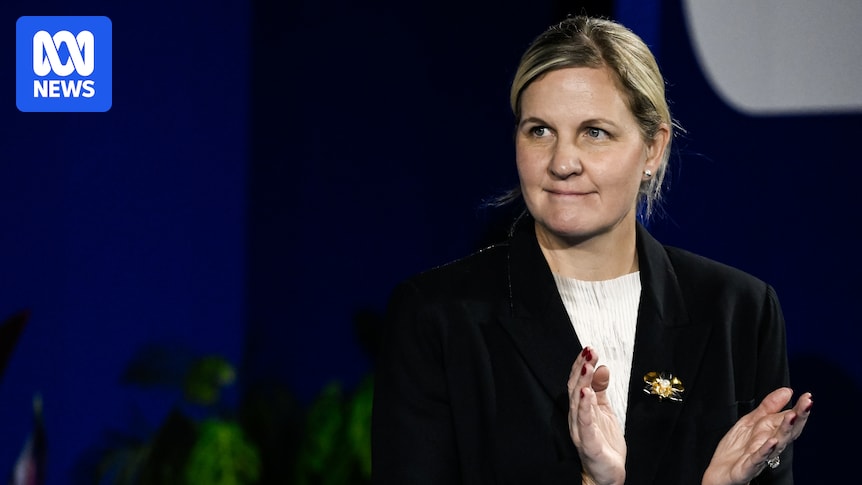
At low tide on the Seaforth coast, a group of dedicated volunteers assembled with buckets and boots, united by a shared mission to rejuvenate the seagrass meadows crucial to the health of the Great Barrier Reef. This initiative, led by Reef Catchments in collaboration with Central Queensland University and OzFish Unlimited, signifies a significant milestone in the (Sea)Grassroots Community Restoration Project—a three-year endeavor aimed at enhancing the resilience of these vital ecosystems.
Seagrass meadows, often overlooked, are powerful ecosystems that stabilize sediment, filter coastal waters, store carbon, and provide essential food and shelter for marine life such as turtles, dugongs, and numerous juvenile fish species. However, these meadows face threats from climate change, poor water quality, and coastal development. Restoration is critical, and community involvement is key to success.
Community-Driven Restoration Efforts
During the recent volunteer events at Seaforth, locals worked alongside marine scientists and Rangers from the Yuwi Aboriginal Corporation to collect seagrass flowers and cores of Zostera muelleri, a key local seagrass species. Known as “Eelgrass,” Zostera muelleri plays a crucial role in reef resilience but is vulnerable to environmental pressures.
Alexandra Williams, a Project Officer with Reef Catchments, highlighted the significance of the community’s efforts, saying,
“Every seagrass flower and core collected aims to bolster the effectiveness of future restoration efforts. This is real science, which the community is a significant part of. It’s great to see the Seaforth community show such a keen interest into how they can help take care of these critical ecosystems.”
Integrating Cultural Knowledge
The involvement of the Yuwi Rangers brought invaluable cultural knowledge and a deep connection to the land. Yuwi Ranger Bron Tonga expressed the cultural importance of seagrass, stating,
“Seagrass is important to our people for physical, spiritual, and cultural reasons. It provides food for the Turtle and Dugongs and is integral to our identity and connection to Country. The Seagrass meadows are vital for the ecosystem’s directly supporting other marine animals. It’s also about the understanding of seasons and cycles to monitor and care for sea meadows.”
This shared respect for seagrass was echoed by Dr. Geoff Collins from OzFish Unlimited, who emphasized its role in supporting fish populations and recreational fishing. He noted,
“These seagrass meadows play a vital role in supporting the life cycle of the fish we all like to catch. If the seagrass meadows suffer, that has a direct impact on recreational fishing. That’s why volunteer events like these are so important – they give the local community a real, hands-on opportunity to take care of fish habitat.”
Global Impact of Local Actions
Seagrass restoration represents local action with a global impact. These meadows enhance the reef’s ability to recover from severe weather, support thriving fish populations, and maintain rich coastal waters. For those who value clean oceans, healthy marine life, and resilient reef systems, meaningful change begins on the shoreline, with hands in the mud.
The project received grant funding from the Australian Government’s Protecting the Great Barrier Reef – Community Stewardship Program, delivered by Reef Catchments in partnership with CQ University and OzFish Limited. To learn more or register for future events, visit www.reefcatchments.com/events.
Photo Credit: OzFish Unlimited
Volunteers in action. Photo Credit: Reef Catchments







